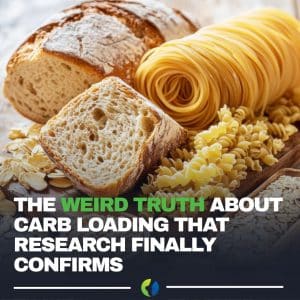Asthma and exercise-induced bronchoconstriction (EIB) can be really frustrating for runners to deal with.
Those with asthma often avoid exercise altogether out of fear of an asthma attack while athletes who have never had asthma before find themselves sidelined from activity due to sudden difficulties in breathing.
Approximately 80 percent of individuals with asthma, and a large population of non-asthmatic, highly competitive athletes experience EIB while exercising.
I myself suffer from EIB so I am especially interested in alternative treatments and dietary changes that can reduce the symptoms and allow me to perform at my best.
Although pharmacologic medications are still usually necessary for the treatment of asthma and EIB, there is a growing collection of evidence supporting the role of dietary modification in lessening the conditions’ severity.
The exact mechanisms that cause EIB are not fully known, however, it is widely suggested that the process leading to airway obstruction involves the release of pro-inflammatory metabolites the cause the bronchial muscles to contract.
Therefore, to reduce bronchial constriction, inhibiting these metabolites should be a key area of intervention.
Fish Oil (EPA and DHA)
The Claim:
Fish oil (omega-3 fatty acids) may have a protective effect on Asthma and EIB due to its anti-inflammatory properties.
The research on fish oil, asthma and EIB:
Today, the typical Western diet contains 20-25 times more omega-6 polyunsaturated fatty acids (PUFAs) than omega-3 PUFAs. This is the result of the increased concentration of vegetable oils, such as soy oil, included in salad dressings, snack foods, crackers, cookies and fast food, among other comestible products.
Omega-6 PUFA metabolism results in the release of pro-inflammatory mediators, which drive inflammatory processes like asthma and EIB. Omega-3 PUFAs competitively inhibit omega-6 PUFA metabolism, thus reducing the production of these pro-inflammatory metabolites.
While the limited research on fish oil supplementation and EIB overall has been deemed inconclusive, at least two recent studies have shown a beneficial effect.
One study focused on subjects with asthma who experienced EIB and another focused on non-asthmatic elite athletes with EIB. In both studies, three weeks of daily fish oil supplementation resulted in improved post-exercise lung function and reduced bronchodilator use when compared to placebo and control diets.
Furthermore, researchers in both studies noted a significant decrease in post-exercise pro-inflammatory markers in subjects who received the fish oil supplements.
The results of these studies are promising, but more research needs to be done to replicate their findings.
It should also be noted the dosage of fish oil that was used in these studies. The subjects received 3.2 grams of EPA and 2.2 grams of DHA daily, which is approximately equivalent to 18 capsules of fish oil per day.
That many capsules in a day can be hard to consume for an extended period of time and can also be quite costly, but for those who suffer badly from EIB, it may be worth a try.
Remember that you can also get omega-3 PUFAs from dietary sources, and fish oil has health benefits that extend beyond EIB improvement. Here are some top dietary sources of omega-3 PUFAs:
- Salmon
- Mackerel
- Herring
- Sardine
- Anchovy
Vitamin C (ascorbic acid)
The Claim:
Oxidative damage has been implicated in asthma due to pro-inflammatory cell activation, increasing mucus production, and increasing hyperactivity of the bronchial muscles, which cause airway inflammation and obstruction.
Vitamin C is a powerful antioxidant that may be able to counteract oxidative damage and reduce the risk for asthma and EIB.
The research on Vitamin C, Asthma and EIB:
Many studies, including interventional studies using vitamin C supplementation, have shown that the nutrient has a protective effect on asthma and EIB.
The study here also investigated the effect of vitamin C supplementation on markers of airway inflammation associated with EIB. In this study, 2 weeks of vitamin C supplementation (1500 mg/d) resulted in improvement of post-exercise lung function and a reduction in the post-exercise concentration of airway inflammation markers when compared to usual and placebo diets in the same subjects.
Notes:
Previous studies have suggested that individuals with asthma have an antioxidant deficiency or may have increased oxidative stress that produces a greater antioxidant requirement.
While it is unlikely that vitamin C supplementation will completely resolve EIB in individuals with asthma, research in the area suggests that it can be a useful addition to traditional pharmacotherapy.
Fresh fruits and vegetables are the best natural sources of antioxidants and have many other health protecting properties so be sure to include a rainbow of fruits and vegetables in your daily diet.
Salt
The Claim:
Asthma morbidity and mortality is higher in populations that have adopted a Western-style diet, which typically includes a dietary intake of salt that exceeds the recommended daily allowance (RDA).
Therefore, there is a possible connection between salt consumption and the severity of asthma, and an intake reduction may lessen the severity of asthma and associated symptoms.
The research on a low-salt diet, asthma and EIB:
A number of studies have been conducted to evaluate the impact of low-salt and high-salt diets on the severity of EIB in subjects with asthma and EIB and also in non-asthmatic subjects with EIB (separate studies).
The studies investigating the relationship between dietary salt intake and asthma have shown mild support for a low-salt diet, but more well-designed studies are needed to produce clinically significant results.
Studies that evaluated the effect of salt intake on subjects with only EIB produced more convincing results. Lower salt intakes (~1500 mg of sodium per day) reduce the severity of EIB and higher salt intakes (~4000 mg/d) increase the severity of EIB.
Notes:
In the studies described, the experimental diets were maintained for 1 to 2 weeks.
There are currently no studies measuring the longer-term effects of a low-salt diet on asthma and EIB, but it should be noted that there are other health benefits resulting from maintaining a lower sodium intake (< 2400 mg/d), such as reducing high blood pressure.
While sodium is an important and necessary component in an athlete’s diet, most Westernized civilizations greatly over-consume salt, and there is strong scientific support for the health benefits of a lower-sodium diet.
Other foods that may help with asthma symptoms
- Coffee — caffeine can help open the bronchial tubes
- Onions — onions have flavonoids that act like antioxidants to help fight inflammation
- Apples — apples also have flavonoids, like quercetin, and other phytochemicals that may improve your overall lung function
- Leafy greens — dark, leafy greens are good sources of magnesium. Low dietary intake of magnesium can increase asthma symptoms
- Yogurt— the probiotics in yogurt have been shown to reduce inflammation and they have also been shown to reduce allergic reactions, which often trigger asthma in some people.
Do you suffer from asthma or exercise-induced bronchoconstriction? If so, have you found these foods to be helpful in controlling your symptoms? What nutritional supplements and strategies have you tried that I didn’t cover. Please leave your thoughts in the comments section, I would love to hear from you.
References





3 Responses
Thanks for this article! I deal with a bronchospasm that is allergen and/or humditiy-induced so it is helpful to maybe try some other alternatives to the sometimes helpful, sometimes not inhalers! Excited to try out some of these tips!!! I have coffee to be helpful in the pass 🙂
Haven’t tried those food you mentioned but I always ensure I got 1 puff of salbutamol before running.
Seems to do the trick well
Interesting article. I suffer from excuse induced and will use inhalers plus black coffee before races.
However when I used to play football I always found I could run better in the second half after the half time oranges!